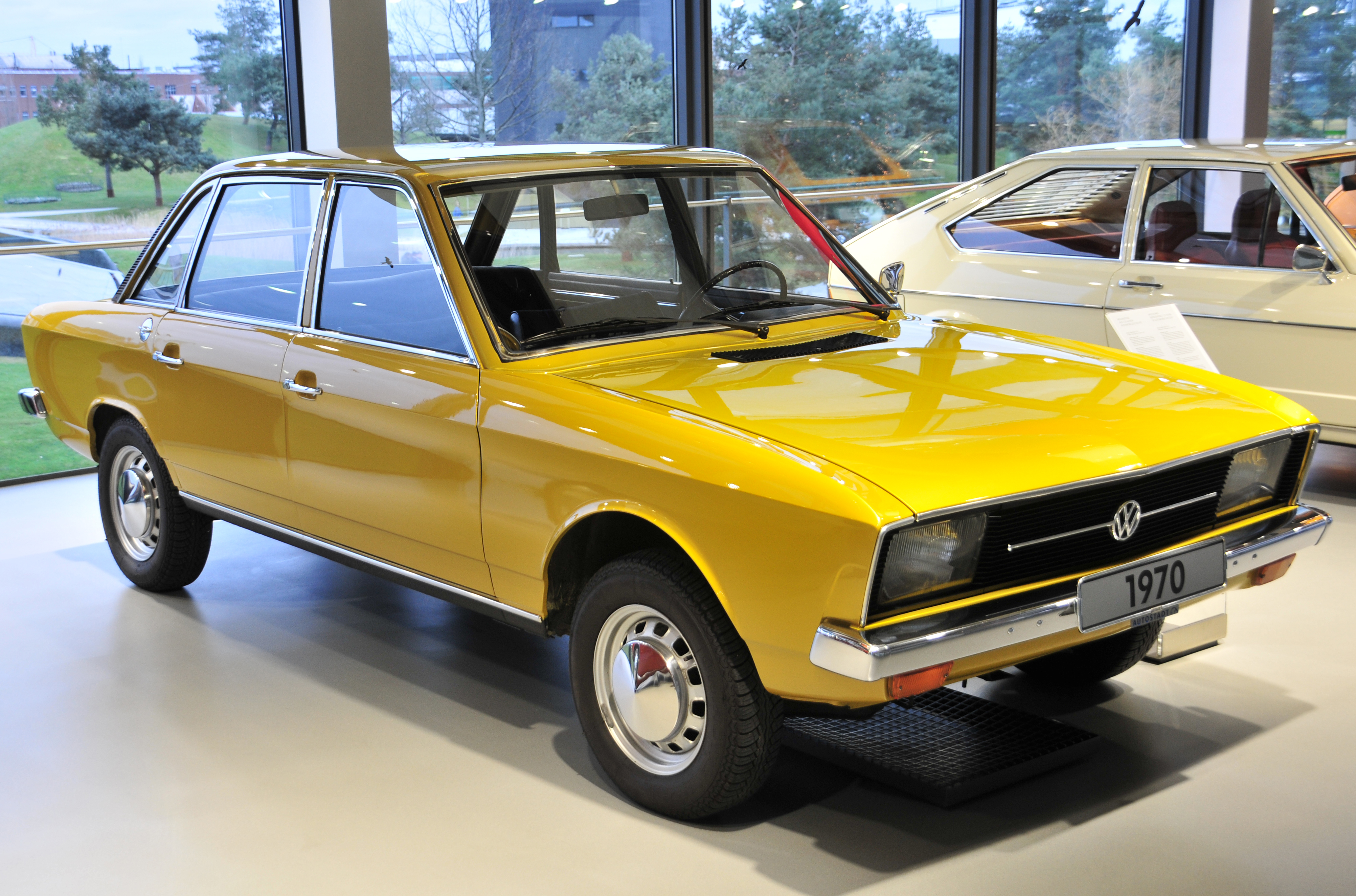Until the 1970 launch of the K70, Volkswagen were staunchly wedded to their established practice and firmly believed engines should be cooled by air and mounted in the rear, so it was a very radical change of direction that came about almost by accident. The K70 didn't actually start life as a Volkswagen at all, having been developed by NSU as a piston-engined companion for their flagship Ro80. Warranty claims for rotor tip seal failure on the latter's Wankel engine drove NSU to bankruptcy and takeover by Volkswagen, and among the assets inherited by the new owner were the designs for the new K70.
The name K70 had been chosen by NSU and followed the same logic as the Ro80. The K meant 'Kolben' (German for piston) and 70 indicated a nominal 70bhp, although the 1.6-litre engine actually ended up developing a little more. It had originally been intended to launch the car as an NSU, but at a late stage Volkswagen decided they needed a new mid-sizer to sell under their own name, as attempts to extend the Beetle concept upwards in the shape of the 411 series weren't entirely successful. To some extent the K70 did suffer from internal competition, both from the 411 (which was a very different approach to the same market sector) and also the Audi 100, which accounts for its relative lack of impact.
 |
| An unexpected place to find the engine in an early 70s Volkswagen, and it has a radiator! http://www.powerful-cars.com/images/vw/1970-k70-18.jpg |
This decision meant the fairly sudden appearance of a radical new Volkswagen that was completely unlike anything the company had ever built before and at the time was seen as an oddity that really didn't fit with the rest of the range. Their own engineers had concentrated exclusively on continuing the principle established by the Beetle, developing air-cooled engines and mounting them in the back of all their vehicles, from the basic Beetle 1200 to the Microbus and the Karmann Ghia. Thanks to its NSU origins, the K70 shared nothing with any other Volkswagen model and with its water-cooled front engine driving the front wheels had far more in common with the Audi range, but it was to begin a revolution that saw all future Volkswagens adopt this layout and break into the mainstream with great success.
| The 1973 facelift gave the K70 round headlights and made it look more like an Audi By Charles01 (Self-photographed) [Public domain], via Wikimedia Commons |
I don't think I have ever seen a K70 in the flesh and they are now extremely rare, not surprising given that only 800 out of the total production of over 200,000 were built in RHD form for the UK market. The model was discontinued in 1975 after a fairly short run and without a direct replacement, and quickly disappeared into obscurity, but if it wasn't for this forgotten car Volkswagen would not be where they are now. In all probability they would have carried on making air-cooled rear-engined vehicles and best-sellers such as the Polo, Golf and Passat would never have appeared. Today's Volkswagen drivers owe an awful lot to the influence of NSU and the humble K70, yet so many of them are completely unaware of its very existence. It is an oddball choice of unsung hero for sure, but one with far more historical importance than its lack of popularity might suggest.
 |
| Had the Ro80's Wankel engine not had so many issues, would Volkwagen still be with us today? |
The tale of the K70 does raise an interesting might-have-been scenario through the chain of potential consequences: had the NSU Ro80 been more reliable then Volkswagen may not now exist, as NSU would not have sold out to them and introduced them to water-cooling, and continued production of rear-engined vehicles could easily have led to Volkswagen's demise as the market changed in the 1980s. There's something for modern Volkswagen enthusiasts to consider.

No comments:
Post a Comment